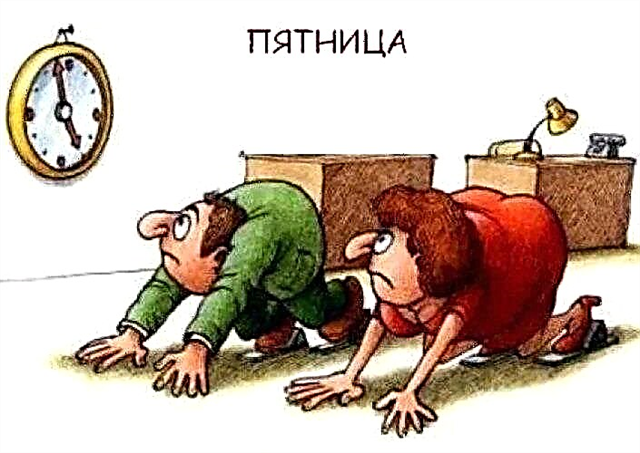
The XIX century was a turning point for the Russian people. The Patriotic War of 1812, the Decembrist uprising in 1825, serfdom and the reform of its abolition (1861) are events that changed public consciousness and determined the further development of Russian culture.
The heroic feat of the Russian people is not limited to time frames, having eternal glory. But why is the 19th century so often called the "golden age" in Russian history?
Golden Age Background
The Patriotic War of 1812 aroused patriotism among the Russian people, pride in their homeland and for the defenders of their native land, who were able to defeat the strongest enemy and defend both national freedom and the freedom of European peoples. The war also had a strong influence on art: works of the XIX century are often devoted to the military theme (the novel “War and Peace” by L. N. Tolstoy and others). The movement of the Decembrists - the Russian nobility, which advocated liberation ideas - caused a strong rise in social and philosophical thought.
Education and science

At the beginning of the 19th century, the government, which had previously maintained conservative views on education, carried out a reform that enlightened not only the upper classes, but also the lower layers of society. Under Alexander I, a four-stage education system was created, including schools, colleges, gymnasiums, universities; as a result, education has become available to peasants, artisans, merchants, philistines and other citizens.The democratization of education and public education led to increased literacy rates and rapid scientific progress.
Interesting fact: As a result of the development of education after the reform of the abolition of serfdom in 1861, the literacy of the people increased from 7% to 22%.

Russian science flourished in the 19th century. The discoveries and achievements of the great Russian scientists of this period made a significant contribution to the development of the natural and human sciences: physics (V.V. Petrov, E. Kh. Lenz), chemistry (D.M. Mendeleev, N. Zinin), biology, medicine ( N.I. Pirogov, N.F. Sklifosovsky), astronomy (V. Ya. Struve; Pulkovo Observatory was opened in 1839), mathematicians (N. Lobachevsky, A.A. Markov), geography (F. Bellingshausen, M. P. Lazarev, whose expedition discovered Antarctica in 1820), history (N. Karamzin - “History of the Russian State”; publication in 1800 of the annals “A Word about Igor's Campaign”), linguistics (V. Dahl - “Explanatory Dictionary of the Great Russian Language” ") and etc.
Music, painting, theater

The Golden Age also touched on art. Extraordinary success was achieved by music in the person of Russian composers M. Glinka and P. Tchaikovsky. P. Tchaikovsky's ballets Swan Lake, The Nutcracker, Sleeping Beauty are the masterpieces of world music. Russian fine art has become famous throughout the world thanks to painters K. Bryullov, I. E. Repin, V. Surikov. The Russian theater rose to unprecedented heights, to which the playwright A. Ostrovsky made the efforts. In addition, in the 19th century, state theaters opened: the Maly and Bolshoi theaters in Moscow, the Alexandrinsky and Mariinsky theaters in St. Petersburg, which are still the centers of theatrical art in Russia and the world.
Golden Age Literature
The "Golden Age" is associated with the development of Russian national culture, but mainly got this name due to the flowering of fiction, which later became classical.
Literature at the beginning of the 19th century relied on the experience of the previous century. The artistic trends that prevailed in the Golden Age are classicism, sentimentalism, romanticism, realism.
The symbol of the golden age of Russian literature is the ingenious poet of world significance, playwright, thinker, founder of the modern literary language A. Pushkin. In the novel by A. Pushkin "Eugene Onegin" reflected all aspects of Russian life. The author depicted the traditions of the era: the features of national life, the interests and values of society, the life of the noble intelligentsia.

The role of A. Pushkin in the culture of Russia is so great that the first third of the 19th century was originally called the Golden Age. - the life of the writer. In the future, the term “golden age” began to be used to refer to literature of the entire 19th century, which was also famous for the names of N. Gogol, F. Dostoevsky, L. Tolstoy, M. Yu. Lermontov, I. Turgenev, A. Chekhov and others. Writers of the golden age are united by the ideas of humanism.
Considering socially significant issues (the meaning of life, good and evil, freedom, patriotism), the authors acted as great thinkers of the era. The singers of freedom covered the problem of the difficult living conditions of the people, caring for the welfare of ordinary people. The works of the golden age are aimed at educating society, awakening conscience and moral values in every thinking person.
Interesting fact: The "Golden Age" of Russian literature is also called the "Pushkin era."

Due to its vivid moralistic nature, Russian literature of the 19th century became a great teacher of society. Readers considered literature a spiritual source, a powerful force capable of changing the consciousness and life of a people. The word of the writer was revered in the same way as the word of the ruler. Books embodying folk ideas illuminated with faith and meaning the life of the disadvantaged, and their authors were proclaimed the spiritual mentors of society. The writers of the Golden Age were called “rulers of doom,” “guides of divine truth,” “prophets,” because they performed a mission.
The answer to the question why the 19th century is called the golden age is obvious: the 19th century is the greatest period of Russian history; the heyday of science, music, painting, theater, literature. The achievements of the brilliant representatives of Russian spiritual culture of this period became the property of world art.
The Golden Age mainly refers to Russian literature of the 19th century, which left a valuable artistic heritage and, thanks to a moralistic ideology, contributed to the spiritual development of the Russian people.












